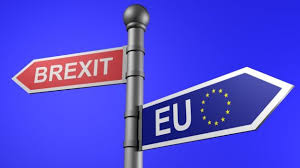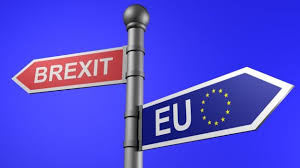
Post Brexit, British tourists are now avoiding more expensive foreign trips following a plunge in the pound and holiday cabins in the country are getting filled up.
With British consumers seeking ways to make their money go further as rising inflation squeezes their incomes, this turnaround in the 10 months since Britons decided to leave the European Union reflects a jump in demand for "staycations".
The pound was sent down by about 20 percent against the dollar and 16 percent against the euro at one point as the referendum result caught financial markets off guard. And as a consequence, holidays to the United States and continental Europe, both popular destinations for Britons, was rapidly pushed up.
Since then, sterling remains down about 14 percent against the dollar and 8 percent against the euro even though it has recovered some of its losses.
By withstanding the initial shock of the Brexit vote, a point made by Prime Minister Theresa May on Tuesday when she called a snap June 8 election, Britain's $2.6 trillion economy surprised almost all forecasters.
But as sterling's fall raises import costs, tut the picture for the years ahead looks weaker. Britons are becoming cautious in their spending - and not just on holidays with annual inflation pushing up toward 3 percent, outstripping sluggish wage growth.
Surveys have shown that households are increasingly worried about the outlook for the economy and according to the British Retail Consortium, retail sales rose at the slowest pace in nearly a decade in the first three months of 2017.
And sales have accelerated at German supermarket groups Aldi and Lidl. Bihght the retailers had become favorite with British shoppers during the global financial crisis due to their deeply discounted prices.
"Customers are voting with their feet," Matthew Barnes, Aldi's CEO for Britain and Ireland, had said in February. However, compared to the years following the 2007-09 financial crisis when inflation hit 5 percent and annual wage growth was even weaker than it is now, the squeeze facing many people in Britain is unlikely to be as sharp. Over the next three years, almost no growth in the spending power of households is anticipated by the Bank of England.
The most important factor behind the central bank's view that the economy cannot be weaned off its record low interest rates is the extent of the hit to consumer spending.
"The big story in terms of the strength of the UK economy is ... the strength of consumer demand, and there are some signs of (that) coming off slowly," Governor Mark Carney said.
The rising demand for staycations was identified as a sign of how consumers are adapting by the bank last month.
Up from 57 percent in 2016, 63 percent of British adults expect to take a holiday or break in England in 2017, according to tourism agency Visit England. Traditional destinations in Scotland, Wales and Northern Ireland will be the destination for more.
Noting a much stronger growth rate than in previous years, a 41 percent jump in UK reservations from domestic tourists since the referendum was seen by bookings website Pitchup.com, which specializes in outdoor holidays.
"People who are moving from a hotel to a cabin are going to be paying significantly less. But they still want their dishwashers, cable TV and iPod docks," said Pitchup.com founder Dan Yates.
In the six months to the end of March, a 90 percent rise in the number of Americans buying in Britain was noted by the luxury brand Burberry.
(Source:www.reuters.com)
With British consumers seeking ways to make their money go further as rising inflation squeezes their incomes, this turnaround in the 10 months since Britons decided to leave the European Union reflects a jump in demand for "staycations".
The pound was sent down by about 20 percent against the dollar and 16 percent against the euro at one point as the referendum result caught financial markets off guard. And as a consequence, holidays to the United States and continental Europe, both popular destinations for Britons, was rapidly pushed up.
Since then, sterling remains down about 14 percent against the dollar and 8 percent against the euro even though it has recovered some of its losses.
By withstanding the initial shock of the Brexit vote, a point made by Prime Minister Theresa May on Tuesday when she called a snap June 8 election, Britain's $2.6 trillion economy surprised almost all forecasters.
But as sterling's fall raises import costs, tut the picture for the years ahead looks weaker. Britons are becoming cautious in their spending - and not just on holidays with annual inflation pushing up toward 3 percent, outstripping sluggish wage growth.
Surveys have shown that households are increasingly worried about the outlook for the economy and according to the British Retail Consortium, retail sales rose at the slowest pace in nearly a decade in the first three months of 2017.
And sales have accelerated at German supermarket groups Aldi and Lidl. Bihght the retailers had become favorite with British shoppers during the global financial crisis due to their deeply discounted prices.
"Customers are voting with their feet," Matthew Barnes, Aldi's CEO for Britain and Ireland, had said in February. However, compared to the years following the 2007-09 financial crisis when inflation hit 5 percent and annual wage growth was even weaker than it is now, the squeeze facing many people in Britain is unlikely to be as sharp. Over the next three years, almost no growth in the spending power of households is anticipated by the Bank of England.
The most important factor behind the central bank's view that the economy cannot be weaned off its record low interest rates is the extent of the hit to consumer spending.
"The big story in terms of the strength of the UK economy is ... the strength of consumer demand, and there are some signs of (that) coming off slowly," Governor Mark Carney said.
The rising demand for staycations was identified as a sign of how consumers are adapting by the bank last month.
Up from 57 percent in 2016, 63 percent of British adults expect to take a holiday or break in England in 2017, according to tourism agency Visit England. Traditional destinations in Scotland, Wales and Northern Ireland will be the destination for more.
Noting a much stronger growth rate than in previous years, a 41 percent jump in UK reservations from domestic tourists since the referendum was seen by bookings website Pitchup.com, which specializes in outdoor holidays.
"People who are moving from a hotel to a cabin are going to be paying significantly less. But they still want their dishwashers, cable TV and iPod docks," said Pitchup.com founder Dan Yates.
In the six months to the end of March, a 90 percent rise in the number of Americans buying in Britain was noted by the luxury brand Burberry.
(Source:www.reuters.com)














